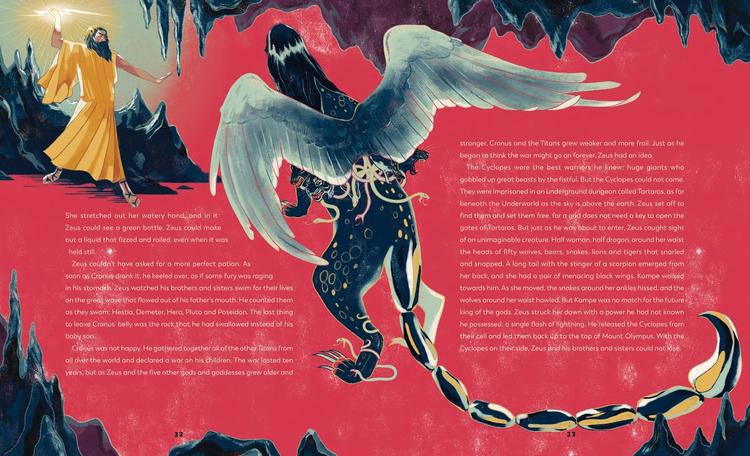Engaging with the myth 'The Birth of Zeus'
I can explore the myth 'The Birth of Zeus'
Engaging with the myth 'The Birth of Zeus'
I can explore the myth 'The Birth of Zeus'
Link copied to clipboard
These resources will be removed by end of Summer Term 2025.
Switch to our new teaching resources now - designed by teachers and leading subject experts, and tested in classrooms.
These resources were created for remote use during the pandemic and are not designed for classroom teaching.
Lesson details
Key learning points
- Reading between the lines to search for clues can help to infer meaning
- Evidence from the text helps us to justify our inferences
- Cronus was overcome by the fear that his children would replace him as the ruler of the world
- Rhea deceived Cronus and Zeus grew up with the bee-nymphs
- There was a war between Cronus and the Titans and Zeus and his brothers and sisters
Keywords
Greek myth - A Greek myth explains the ancient Greek culture's beliefs and customs; they usually involve gods and supernatural creatures.
Pantheon - A Pantheon is the collective term for all the gods and goddesses recognised and worshipped within a particular religious tradition.
Nymphs - Nymphs are female spirits in Greek mythology; they are often associated with nature.
Tartaros - Tartaros served as a place of punishment in Greek mythology; it also acted as a prison for Titans and other powerful beings.
Characterisation - Characterisation is the way an author describes and develops the personalities and traits of the characters in a story.
Common misconception
Pupils may initially get Cronus confused with Chronos who they were introduced to in Lesson 2.
Cronus was the leader of the Titans. Chronos was the god of time.
To help you plan your year 4 english lesson on: Engaging with the myth 'The Birth of Zeus', download all teaching resources for free and adapt to suit your pupils' needs...
To help you plan your year 4 english lesson on: Engaging with the myth 'The Birth of Zeus', download all teaching resources for free and adapt to suit your pupils' needs.
The starter quiz will activate and check your pupils' prior knowledge, with versions available both with and without answers in PDF format.
We use learning cycles to break down learning into key concepts or ideas linked to the learning outcome. Each learning cycle features explanations with checks for understanding and practice tasks with feedback. All of this is found in our slide decks, ready for you to download and edit. The practice tasks are also available as printable worksheets and some lessons have additional materials with extra material you might need for teaching the lesson.
The assessment exit quiz will test your pupils' understanding of the key learning points.
Our video is a tool for planning, showing how other teachers might teach the lesson, offering helpful tips, modelled explanations and inspiration for your own delivery in the classroom. Plus, you can set it as homework or revision for pupils and keep their learning on track by sharing an online pupil version of this lesson.
Explore more key stage 2 english lessons from the 'A Journey through Greek Myths': reading unit, dive into the full secondary english curriculum, or learn more about lesson planning.

Content guidance
- Depiction or discussion of sensitive content
Supervision
Adult supervision recommended
Licence
Starter quiz
6 Questions

Exit quiz
6 Questions
explains the ancient Greek culture's beliefs and customs
the collective term for all the gods and goddesses
female spirits in Greek mythology, associated with nature
a place of punishment in Greek mythology
the way an author describes and develops a character
Cronus was worried he would lose his power and control
Rhea hides her son, and asks the bee nymphs for support
Zeus wants to teach his father a lesson



